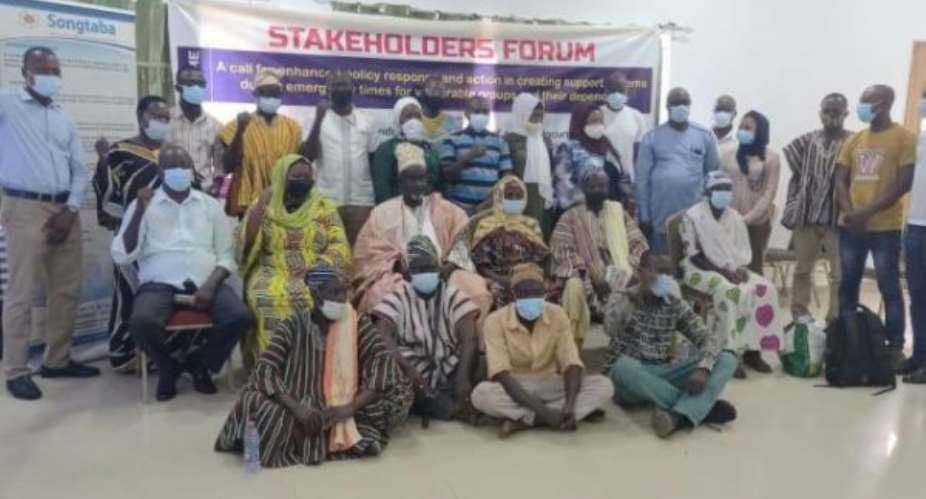A survey by Songtaba, a women advocacy non-governmental organization (NGO), has found out that inmates of alleged witch camps in the Northern Region, have limited access to justice when accused of being witches.
The study revealed that “94.8 percent of alleged witches who were sampled said they had limited awareness of the avenues for seeking justice as at the time of their accusations and abuse. They only knew of the chief palaces in their communities”.
Madam Lamnatu Adam, Executive Director of Songtaba, who presented the report, said “Chiefs and other community stakeholders who were to ensure that each and every one was treated justly, rather facilitated the denial and even infringe on their rights to be given a hearing. It was rather a shrine which was resorted to, to determine their fate as to whether an alleged victim is guilty or not”.
This was made known at a stakeholders' forum, in Tamale, organized by Songtaba, to launch findings of the report, titled; “Socio-economic and livelihood conditions of accused and abused women: A case of inmates and non-inmates of Gnani and Kpatinga alleged witch camps”.
The forum was on the theme; “A call for enhanced policy response and action in creating support systems during emergency times for vulnerable groups and their dependants”.
The study, supported by STAR Ghana Foundaton and the United Kingdom Agency for International Development (UKAid), was to identify policy gaps for the protection of vulnerable groups in times of emergencies for advocacy.
Madam Adam further stated that “97 percent of the respondents indicated that all matters and decisions that directly affect them are made for them and in most cases, they are directed as to what to say to external visitors such as NGOs and others”.
She, therefore, appealed to policymakers and other stakeholders such as the Ministry for Gender, Children and Social Protection (MoGCSP), to educate and intensify public awareness on platforms to report and seek justice when one is accused of witchcraft and abused.
Some of the participants at the forum also called for stakeholder consultative engagements between human rights organizations and traditional authorities to sensitize chiefs and elders on the consequences of human rights abuse associated with accusing women of witchcraft and how they could stop the act in their communities.
They further called on MoGCSP to adopt policies that would guarantee the safety of inmates at the various alleged witch camps to ensure they realized their fundamental human rights.
—GNA





 SSNIT must be managed without gov’t interference – Austin Gamey
SSNIT must be managed without gov’t interference – Austin Gamey
 Ejisu by-election could go either way between NPP and independent candidate — Gl...
Ejisu by-election could go either way between NPP and independent candidate — Gl...
 We never asked ministers, DCEs to bring NPP apparatchiks for returning officer r...
We never asked ministers, DCEs to bring NPP apparatchiks for returning officer r...
 No one denigrated the commission when you appointed NDC sympathizers during your...
No one denigrated the commission when you appointed NDC sympathizers during your...
 Used cloth dealers protests over delayed Kumasi Central Market project
Used cloth dealers protests over delayed Kumasi Central Market project
 A/R: Kwadaso onion market traders refuse to relocate to new site
A/R: Kwadaso onion market traders refuse to relocate to new site
 Dumsor: Corn mill operators at Kaneshie market face financial crisis
Dumsor: Corn mill operators at Kaneshie market face financial crisis
 Jamestown fishermen seek support over destruction of canoes by Tuesday's heavy d...
Jamestown fishermen seek support over destruction of canoes by Tuesday's heavy d...
 Election 2024: EC to commence voter registration exercise on May 7
Election 2024: EC to commence voter registration exercise on May 7
 Western Region: GWL hopeful of restoration of water today in Sekondi-Takoradi
Western Region: GWL hopeful of restoration of water today in Sekondi-Takoradi
